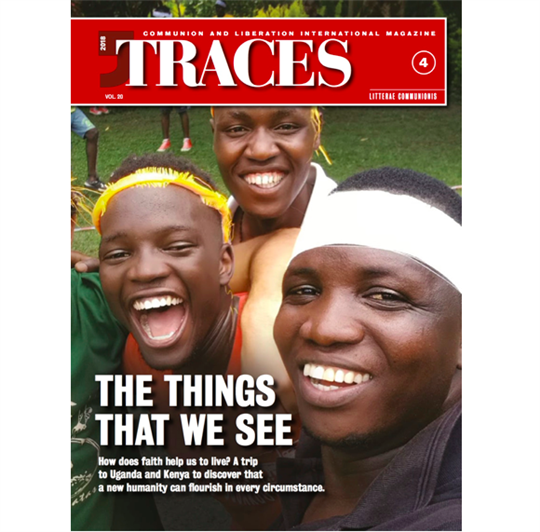
Traces N.4, April 2018
The Facts Before Our EyesWe have our ideas, sometimes even correct ones, perhaps forged over years of observation and in-depth study of things that, at a certain point, in one way or another, we think we “know.” And then we have the facts, those things that continually happen before our eyes and that stubbornly continue to get through to us in spite of ourselves. They could be small ones–an unexpected encounter, a thoughtful judgment from a person from whom you might not expect it–or big ones, like the sudden death of a friend.
Often, these facts lead to a fork in the road. And if you really think about it, this is almost always the case even if we don’t realize it. In the face of such events, we can decide to follow their initial impact on us, giving that instant of surprise we felt space to grow, allowing them to lead us to discover something that’s truly new. Alternatively, we can immediately put up our defenses, deadening the impact of facts by forcing everything to t into the frameworks we already have in mind. We often go down this second road, but what happens when we instead decide to stay open to them? What happens when what prevails, even for only an instant, is that childlike wonder that the facts stubbornly continue to give us as a gift?
The articles you will find in this Traces include an example that responds to that question, Fr. Ignacio Carbajosa’s account of his recent trip to Uganda and Kenya. This “50-year-old European priest” and “man of reason,” as he self-deprecatingly describes himself, is about how he grapples with a witness that blows him away again and again. His is the story of that constant comparison of “what happens” with “ready-made reflections,” to use his words once again: it is a comparison of the surprising facts scattered throughout the days he spent with the CL communities in those countries with his ideas, with what he “already knew.” The article is a description of what happens in our hearts when what wins out are the facts; in other words, the method God has always used for the conversion of our hearts.
In the end, this is the name of the game we all play every day, in the heart of Africa or in Latin America, in the fields of Lombardy, or in the minutia of our lives, right where we are. It’s the tension between what we have in mind and the Mystery working before us, inviting us to follow Him. Which is better for us?